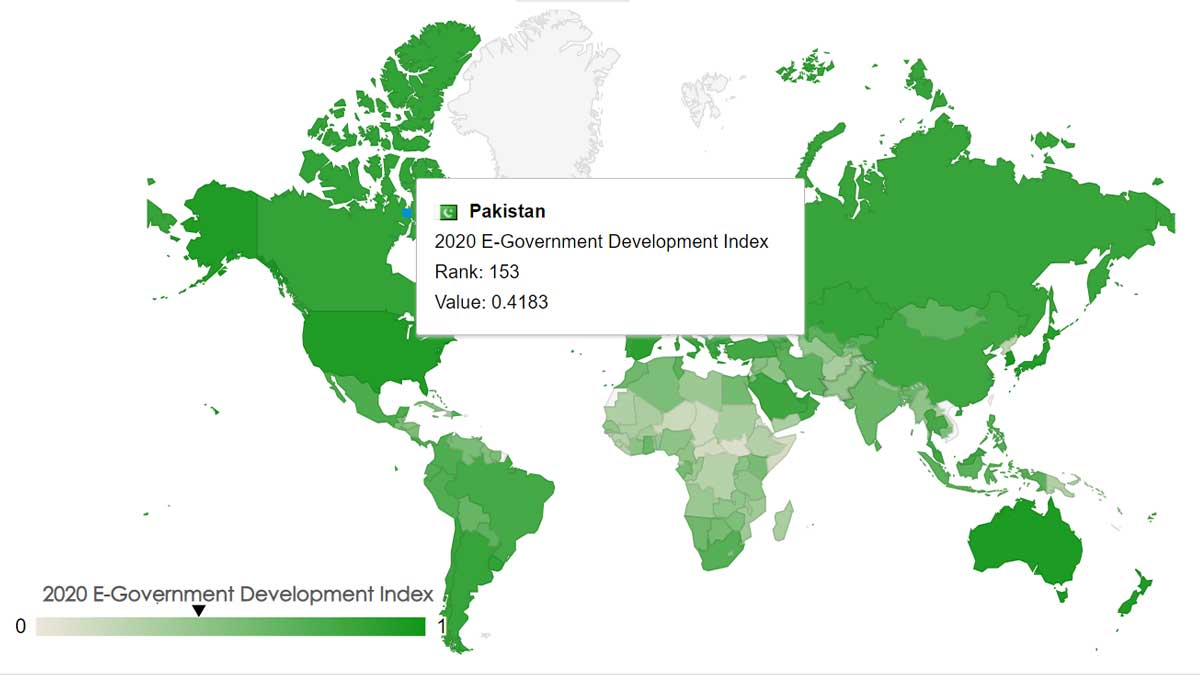In the year 2018, Pakistan was ranked at 148 positions among 193 countries of the world and that position has now come down to 153, revealed a E-Government Development Index report.
According to a survey report of the E-Government Development Index (EGDI), in the past, the UN’s index tracked the only e-government development but today, three other factors have been included to judge the e-development of any country. These three factors include; Online Service Index (OSI), Human Capital Index (HCI), and Telecommunication Infrastructure Index (TII).
The report tells in detail about the digital information development of any country including the reasons why the expected level of usage could not be achieved. The report elaborates the causes why Pakistan remained unable to adopt the digital information culture at the desirable level.
Read more: Pakistan loses two spots on Global Gender Gap Index, slides into ranks of worst four countries
It further says that the reasons include the lack of enabling infrastructure and low affordability, digital skill gap, cyber security, data privacy and lack of trust, service design maturity, and limited citizen participation. In the report, recommendations to improve the present condition have been propounded.
Some of the recommendations include the development of a national digital government strategy, devise an action plan for the implementation of the road map, in place functional building block, establish a center of excellence for data and advanced analytics, develop a common governance framework, digital information management.
Additionally, IT spend control, data and technology standard, shared and common systems, platforms, application and digital and centralized cross-government IT support, Revisit the present telecom policies and plans, develop public-private partnerships, offer a flexible regulatory regime to investors and businesses in telecom services, encourage innovative practices, develop lifelong digital learning education policy, launce a training program for citizens to build digital literacy and improving skill government employees, ensure cyber security and data protection for smooth functioning, devise clear legislations and robust standards on data privacy, adopt the citizen-centric approach, develop forward-looking national citizen participation and engagement plan, develop and launch effective user-friendly online participatory platforms and plan to achieve 100 percent digital literate nation.





















